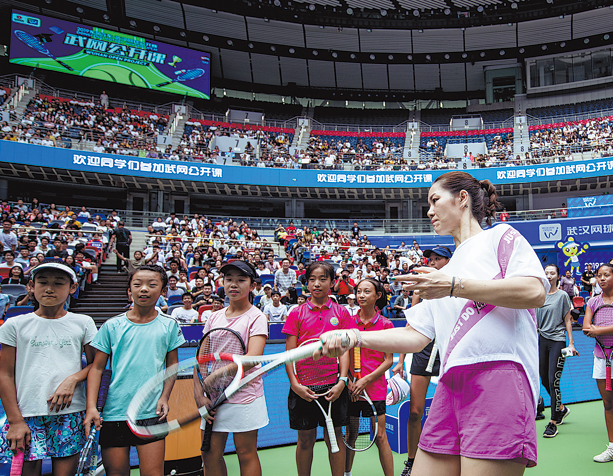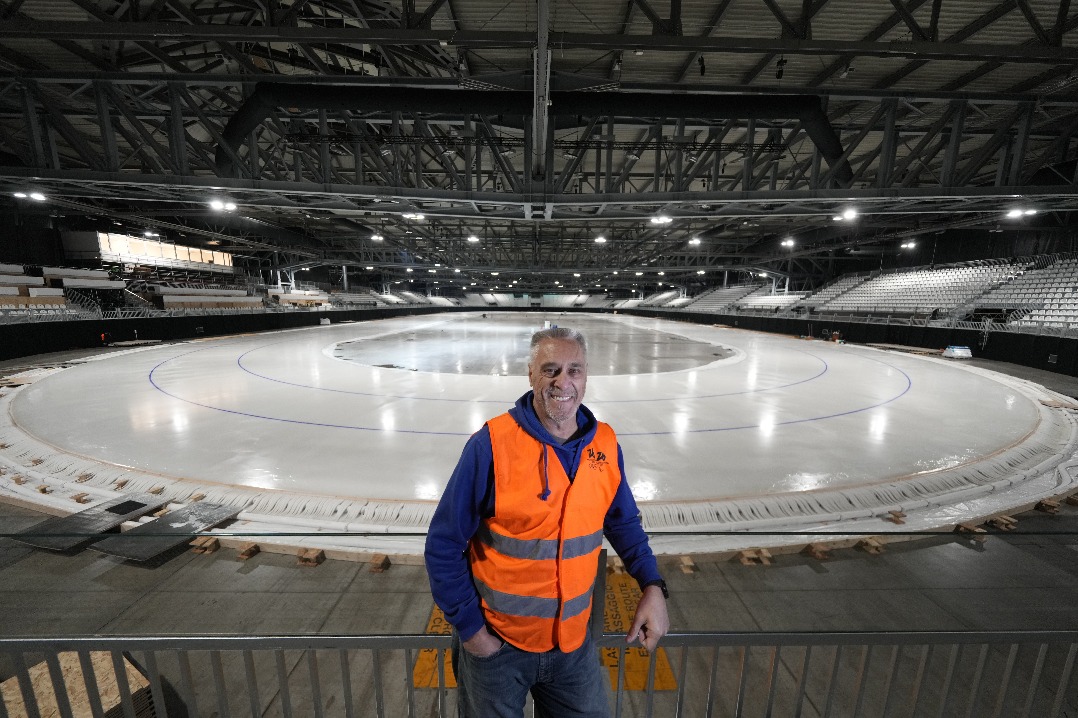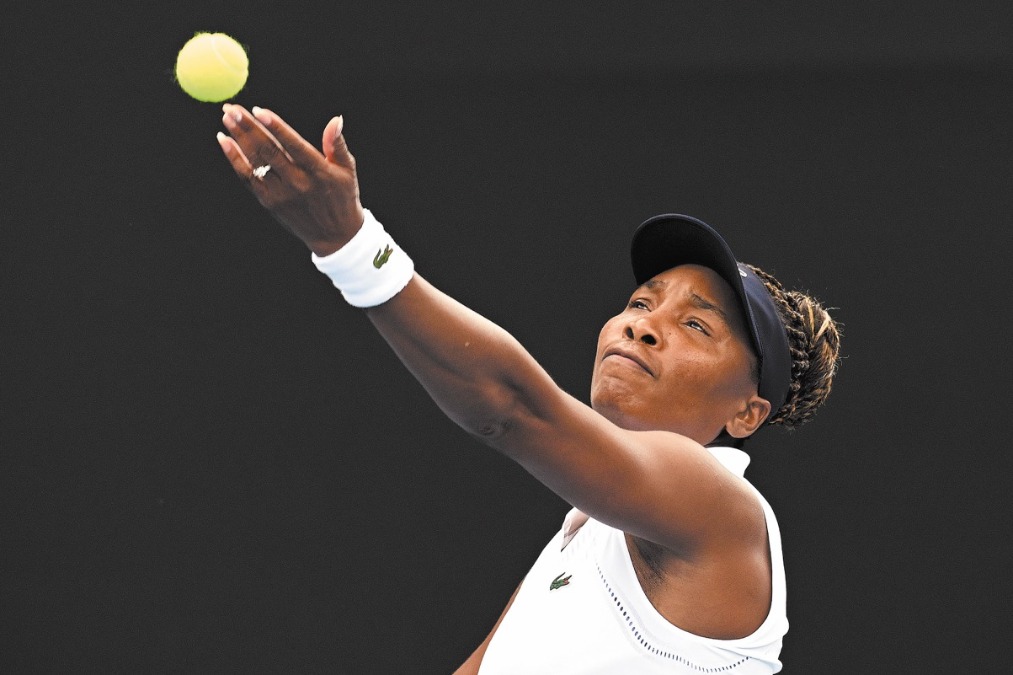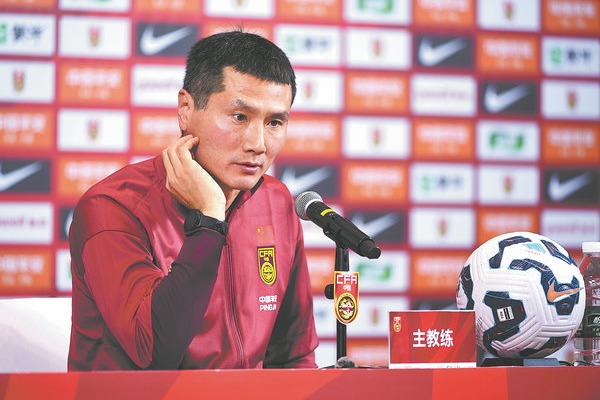Wuhan's next-gen thinking puts youngsters center court

The Wuhan Open's commitment to youth development is not just restricted to giving young Chinese pros the chance to test themselves against the world's elite.

An even younger generation of tennis enthusiasts are also gaining invaluable experience at the WTA Premier 5 tournament, which on Saturday was won by rising Belarusian star Aryna Sabalenka for the second straight year.
This year, a program entitled WTA Future Star allowed 12 lucky youngsters from Hubei province to enjoy practice sessions in the state-of-the-art main stadium at Optics Valley International Tennis Center. The kids, aged 9-14, also got to interact with some the stars of the event, including Chinese ace Duan Yingying and coach Liu Shuo, who is behind the success of world No 38 Zhang Shuai.
"I feel so lucky to watch the matches of Wang Qiang on site here, and I'm touched by her spirit of fighting the best she can for every minute," said Zhou Ziyu, a 10-year-old at the camp.
"I want to learn from my idol Li Na, and my goal is to enter the world's top 100 one day."
Unearthing the next Li Na would be nice, of course, but that's certainly not the focus of Wuhan's youth work. Getting more kids to simply pick up rackets and embrace the fun and culture of tennis has always been the main aim.
"Having the next generation of fans certainly helps to develop tennis culture in China," said Brenda Perry, tournament co-director. "We did the Future Star development camp for the first time in China this year. We want more children to play here and we hope the next generation are more aware of the sport of tennis. But it does take time."
The Wuhan Open's extensive search for ball kids to serve at the tournament has also proved a huge hit with children and parents alike.
Lu Shuming has been in charge of recruiting and training ball kids since the inaugural edition of the Wuhan Open in 2014. He told China Daily that the program is a hugely rewarding process for all concerned, even for the kids who don't make the cut.
"Each year we have over 20,000 local students signing up to try to become a ball kid. After rounds of training sessions and selection, only about 100 of them will serve at the tournament," he said.
"The training and selection are pretty tough for the kids. They need to be in good physical condition, have good body strength, comprehensive knowledge of the rules of tennis and certain English language skills to communicate with the players."
Picking the right kids for the job is no easy task for the judges.
"Some kids may have a strong interest and good knowledge of tennis, but their physical condition may not meet the standard," explained Lu. "Some kids may run fast enough and have good strength, but they probably know nothing about the sport.
"We get great feedback from the parents. They tell me that their kids have changed a lot. Smartphones and video games had been the only interests of some of the kids, but the training camp piqued their interest in tennis and some even asked their parents to hire a tennis coach."
The very best of the bunch can enter a French Open exchange program, which involves four Chinese ball kids going to serve at Roland Garros and four French kids heading in the opposite direction to Wuhan.
Lu says the lucky participants always return enriched by the experience of working at a Grand Slam tournament and sampling a new culture.
The Wuhan Open also operates a journalism program for elementary and middle school students, which gives its young participants the chance to pose a question to the star players at media conferences.
"Promoting tennis will be a priority of our work in the coming years," said tournament co-director Li Qiuping.
"We want more people to be attracted to the tennis community."
Most Popular
- China reaches knockout stage for first time in AFC U23 Asian Cup
- China ties Iraq 0-0 in its U23 Asian Cup opening match
- A learning curve
- Russian team wins Harbin International Ice Sculpture Competition
- Worldloppet ski season opens with Changchun cross-country event
- Women's half-marathon draws 20,000 runners to Guangzhou





























